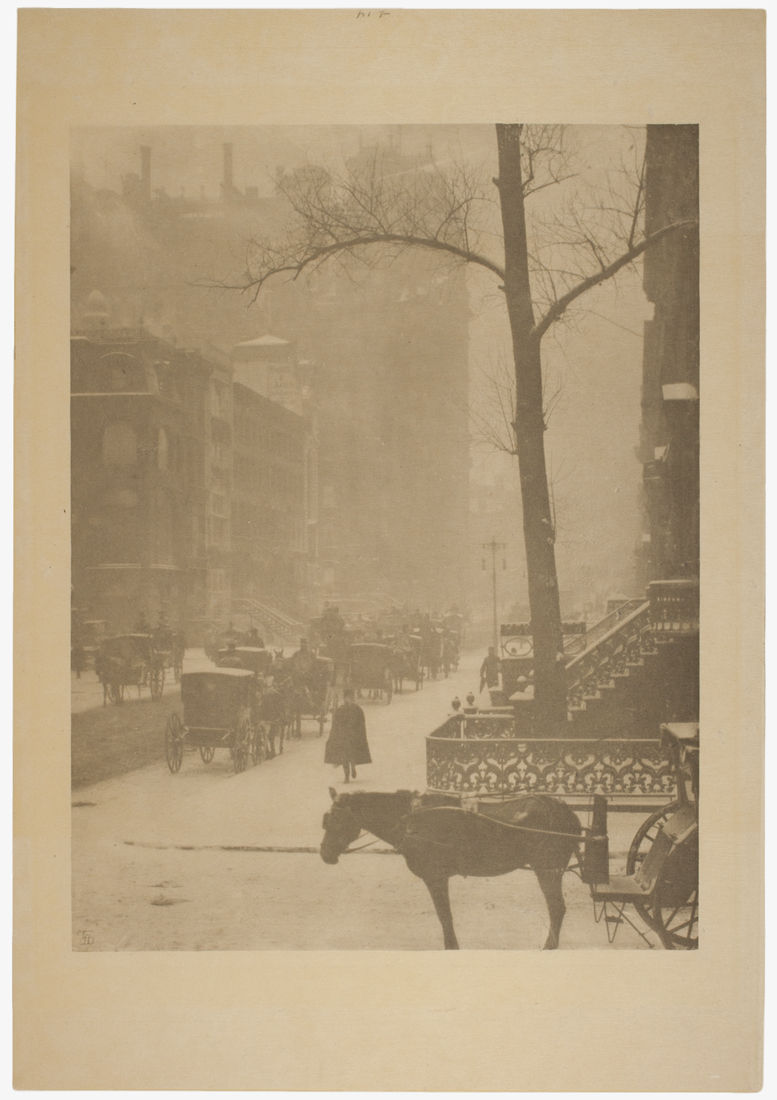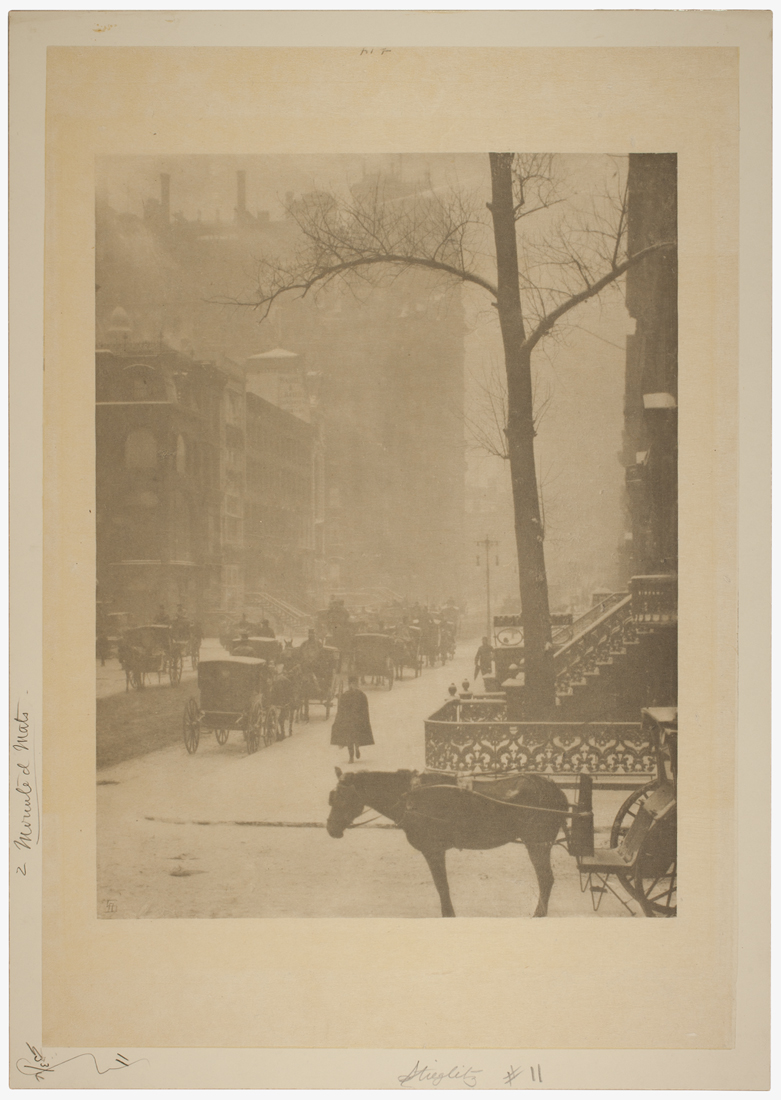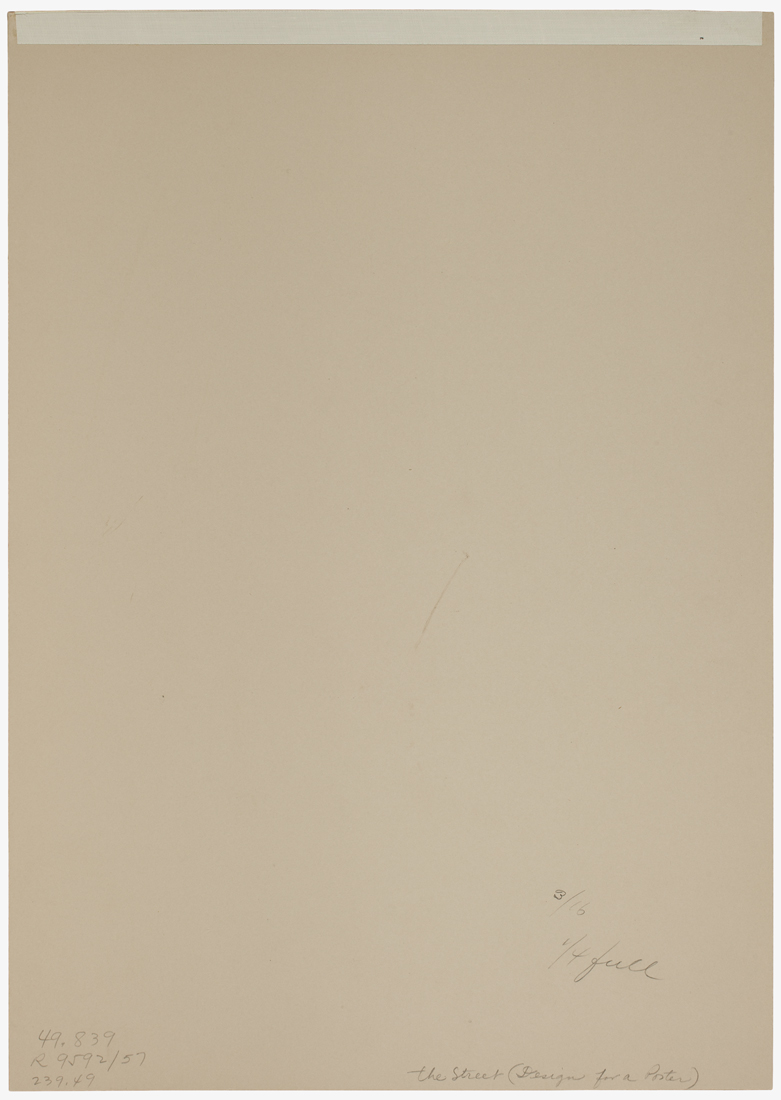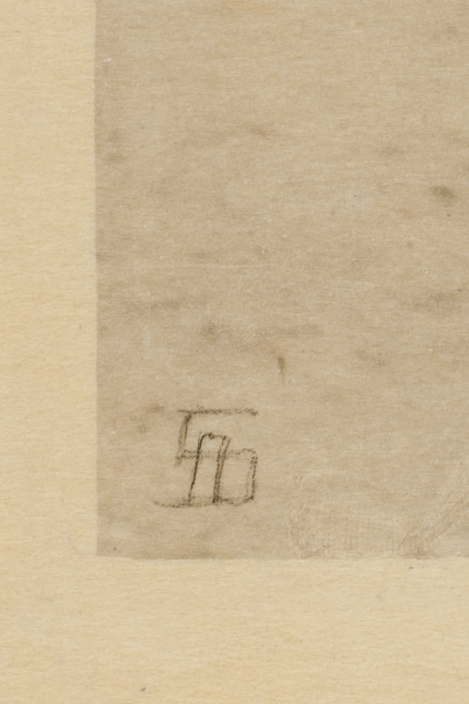Alfred Stieglitz (American, 1864–1946)
The Street, Fifth Avenue, 1900/01
Alfred Stieglitz Collection, 1949.839
Additional resources related to this object are to the right.
Related Glossary Pages
Artists
Alfred Stieglitz
Through his own photographic work over the course of a half century, the journals he read more
Processes
Photogravure
The earliest method of reproducing photographs in ink, photogravures peaked in popularity at the turn read more
Galleries
Little Galleries of the Photo-Secession/291
The Little Galleries of the Photo-Secession—later known as 291—began as a place to display and read more
Galleries
Anderson Galleries and the Intimate Gallery
With the closure of the gallery 291 in 1917, Alfred Stieglitz found himself without a read more
Galleries
An American Place
At his last gallery, An American Place, Stieglitz welcomed a stream of visitors who wanted read more
Journals
Camera Work
Stieglitz had edited two previous publications—The American Amateur Photographer and Camera Notes—before deciding in 1902 read more
Themes
Pictorialism
The international movement known as Pictorialism represented both a photographic aesthetic and a set of read more
Themes
The Photo-Secession
Following the model of other artistic secessions in Europe around the turn of the century—notably read more
Stieglitz Series
Early Work
As a young man Alfred Stieglitz studied photochemistry in Berlin, and he returned to New read more
Stieglitz Series
New York Views
Beginning when he was a young man newly returned from studying in Germany and continuing read more
Object Research
Key Sources
In: Camera Work 3 (July 1903)
Exhibited: Hamburg, 1903
Exhibited: San Francisco, 1903
Exhibited: Washington, D.C., 1904
Exhibited: Pittsburgh, 1904
Exhibited: Vienna, 1904
Exhibited: Paris, 1904
Exhibited: Dresden, 1904
Exhibited: The Hague, 1904
Exhibited: London, 1904
Exhibited: Vienna, 1905
Exhibited: Richmond, 1905
Exhibited: Buffalo, 1910
Exhibited: New York, 1921
Exhibited: New York, 1932
Exhibited: Philadelphia, 1944In Other Stieglitz Collections
The Carl Van Vechten Gallery, Fisk University
The Metropolitan Museum of Art
Museum of Fine Arts, Boston
National Gallery of Art
The National Museum of Modern Art, Tokyo
Philadelphia Museum of Art




